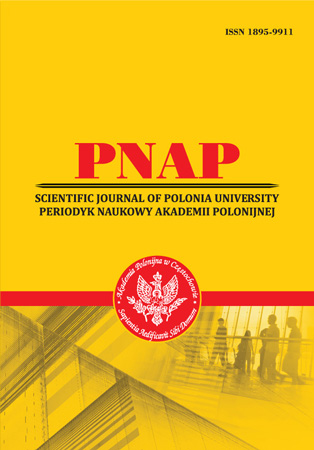CONCEPTUAL MODEL OF FORMATION OF PROFESSIONAL COMPETENCE OF FUTURE TEACHERS OF PHYSICAL EDUCATION IN THE FIELD OF ECOLOGICAL TOURISM
Abstract
The article presents a conceptual model that provides a holistic continuous process of formation of professional competence of future teachers of physical education in the field of eco-tourism. The design of the model was based on a systematic analysis of the structure, content and consists of the following blocks: target, reflecting the social demand, it’s aim, it’s tasks for the formation of professional competence of future teachers of physical education in the field of eco-tourism and it’s components; contents block, containing principles, organizational and pedagogical conditions for the formation of professional competence, forms and methods, which were used during the process; outcome block, which included evaluation criteria and levels of professional competence. It was found that the formation of professional competence becomes more effective due to the implementation of the following organizational and pedagogical conditions: the content focus of pedagogical education of future teachers of physical education on the formation of a stable positive motivation to master professionally notional knowledge and skills in eco-tourism and their use in professional activities; updating the content of professional training of future teachers of physical education through the implementation of specialization “Ecological and sports tourism”, taking into consideration the disciplines of the social demand on strengthening and preserving the health of children and youth by means of ecological tourism in the teaching content; availability of educational and methodical support during the process of formation of professional competence; the relationship of competency, system and personal-activity approaches.
References
2. Kosolapov A. B. (2005). Teoryia y praktyka ekolohycheskoho turyzma: ucheb. posob. [Theory and practice of ecological tourism]. Moscow, 240 p. [in Russian].
3. Mulyk K. V., Nosko M. O. (2015). Dyferentsiiovanyi pidkhid do pidhotovky fakhivtsiv zi sportyvno-ozdorovchoho turyzmu dlia roboty z ditmy, pidlitkamy ta studentskoiu moloddiu [Differentiated approach to the training of specialists in sports and health tourism to work with children, adolescents and students]. Bulletin of Chernihiv National Pedagogical University. Series: Pedagogical sciences. Physical education and sports, Nr 129 (2), P. 217–222. [in Ukrainian].
4. Fokin S. P. Turyzmolohichni aspekty sportyvnoho turyzmu [Tourism aspects of sports tourism]. Scientific Bulletin of the Institute of International Relations of NAU: Coll. Science. Art. Kyiv: Nat. aviation. University «NAU-print», vol1., Nr 1, 148 p. [in Ukrainian].
Abstract views: 182 PDF Downloads: 146







